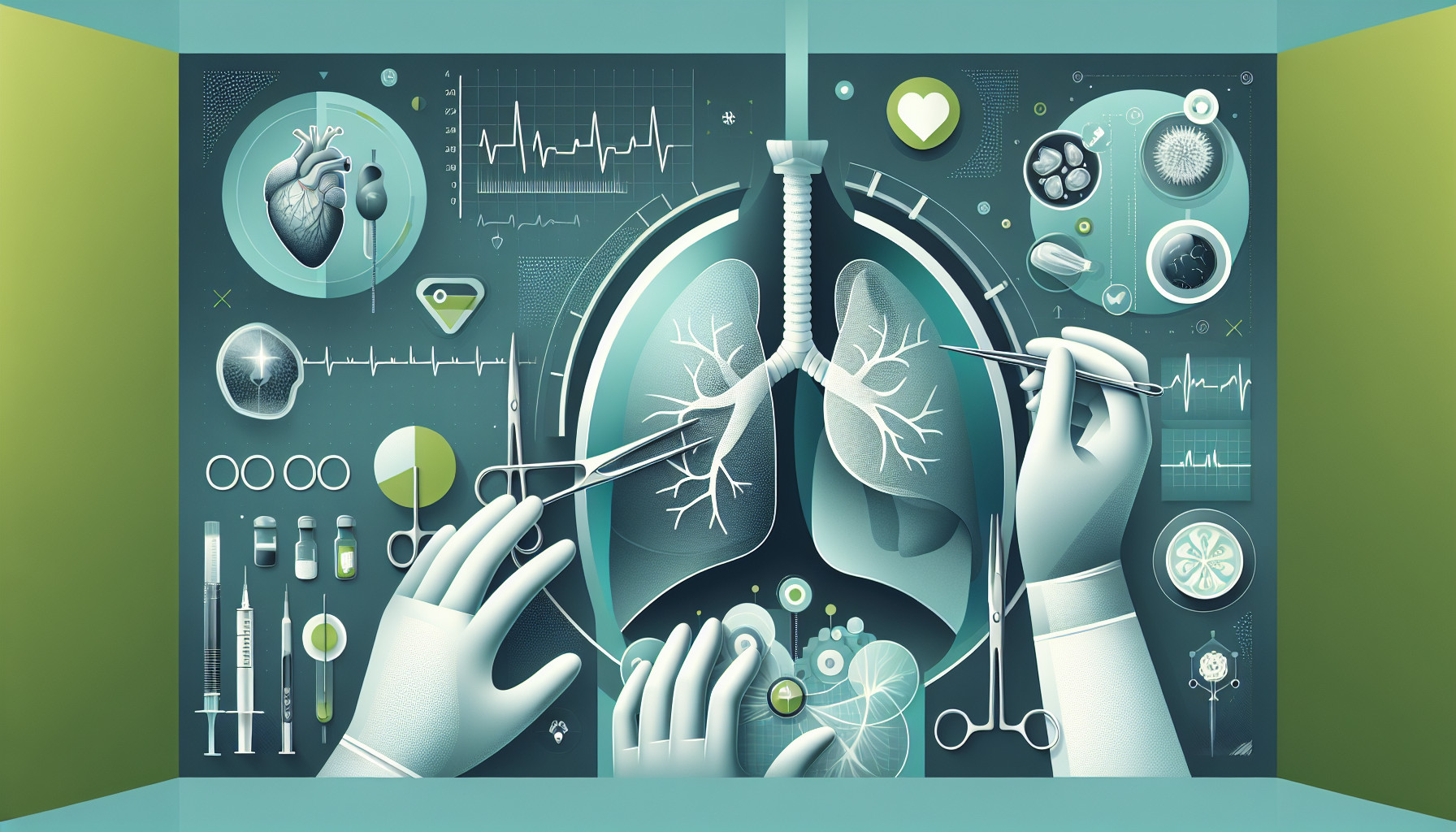Our Summary
This research paper is saying that there aren’t many controlled studies looking at the relationship between the amount of fluids given after a lung transplant surgery and the patient’s recovery. However, looking at other types of chest surgeries, it seems that giving too much fluid (hypervolemia) can lead to fluid build-up in the lungs (pulmonary edema), which should be avoided in patients who just had a lung transplant. However, the paper acknowledges that patients who are unstable may need extra fluids, but this potential issue can likely be controlled with medication that helps maintain blood flow and prevent fluid build-up.
FAQs
- Does fluid volume delivery impact outcomes in postoperative lung transplant patients?
- What is the correlation between hypervolemia and pulmonary edema in lung transplant patients?
- Can the use of inotropic medication help maintain adequate perfusion and avoid the development of edema in lung transplant patients?
Doctor’s Tip
A doctor might advise a patient who has undergone a lung transplant to closely monitor their fluid intake and output, as well as any signs of fluid retention such as swelling or shortness of breath. It is important to maintain a balance between hydration and avoiding hypervolemia, as excess fluid can lead to pulmonary edema and other complications. Patients should follow their healthcare provider’s recommendations for fluid management and seek medical attention if they experience any concerning symptoms.
Suitable For
Patients who are typically recommended for lung transplant are those with end-stage lung disease who have exhausted all other treatment options and have a poor prognosis without a transplant. This includes patients with conditions such as cystic fibrosis, idiopathic pulmonary fibrosis, chronic obstructive pulmonary disease (COPD), pulmonary hypertension, and interstitial lung disease.
In addition, patients who are younger, non-smokers, have good nutritional status, lack significant comorbidities, and have strong social support systems are often considered better candidates for lung transplant. Patients must also be willing and able to comply with post-transplant medication regimens and follow-up care.
It is important for patients to undergo a thorough evaluation by a multidisciplinary team, including pulmonologists, transplant surgeons, social workers, psychologists, and nutritionists, to determine their eligibility for a lung transplant. The decision to recommend a lung transplant is made based on a combination of medical, psychological, and social factors to ensure the best possible outcomes for the patient.
Timeline
Before Lung Transplant:
- Evaluation and assessment by a transplant team to determine eligibility for transplant.
- Placement on the transplant waiting list.
- Pre-transplant testing, including blood tests, imaging studies, and consultations with various specialists.
- Waiting for a suitable donor organ to become available.
- Pre-operative preparation, including education about the transplant process and post-operative care.
After Lung Transplant:
- Surgery to remove the diseased lung(s) and replace it with a donor lung.
- Recovery in the hospital, which may include monitoring for complications such as rejection or infection.
- Rehabilitation and physical therapy to regain strength and function.
- Long-term medication regimen to prevent rejection and manage potential complications.
- Follow-up care with the transplant team for monitoring and adjustments to treatment as needed.
What to Ask Your Doctor
- What is the success rate of lung transplants at this facility?
- What are the potential risks and complications associated with lung transplant surgery?
- How long is the average recovery time after a lung transplant?
- What medications will I need to take after the transplant and what are the potential side effects?
- How often will I need to come in for follow-up appointments after the transplant?
- What lifestyle changes will I need to make after the transplant?
- How will I know if my body is rejecting the new lung?
- Are there any specific restrictions on activities or diet that I need to follow after the transplant?
- What support services are available for lung transplant patients at this facility?
- What is the long-term prognosis for patients who have received a lung transplant?
Reference
Authors: Schultze BS. Journal: Nurs Clin North Am. 2017 Jun;52(2):301-308. doi: 10.1016/j.cnur.2017.01.007. PMID: 28478878
